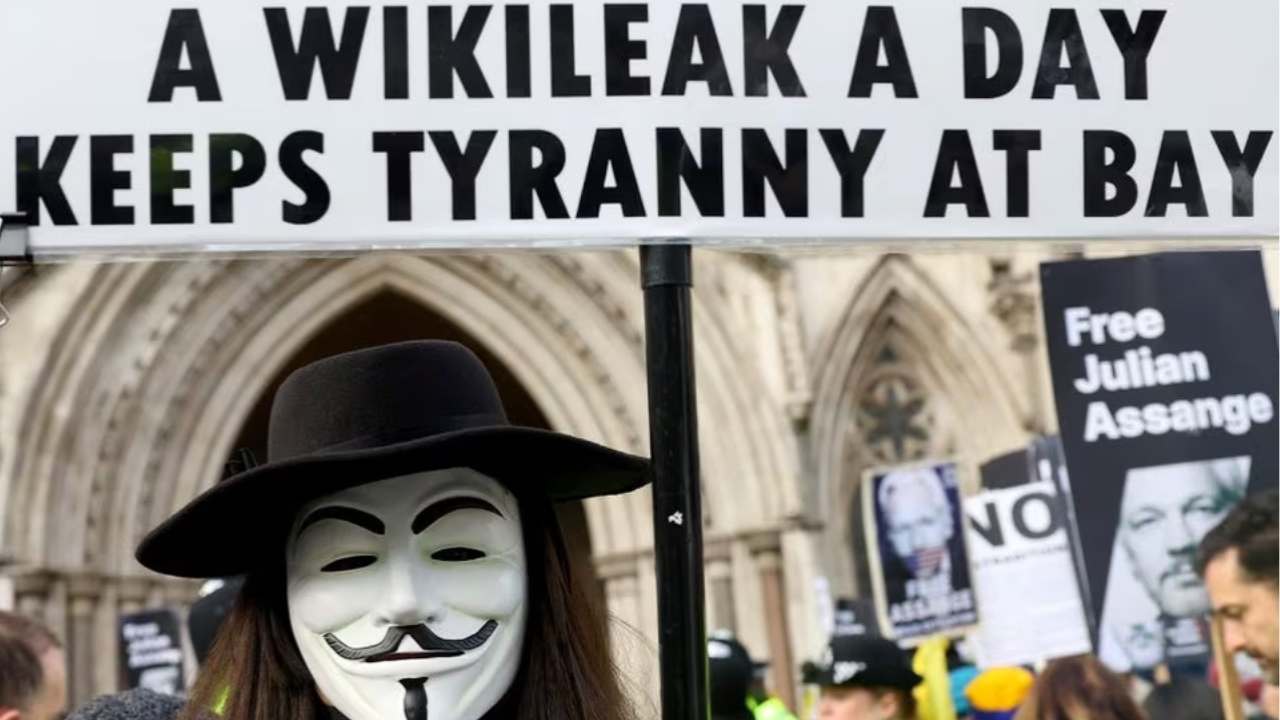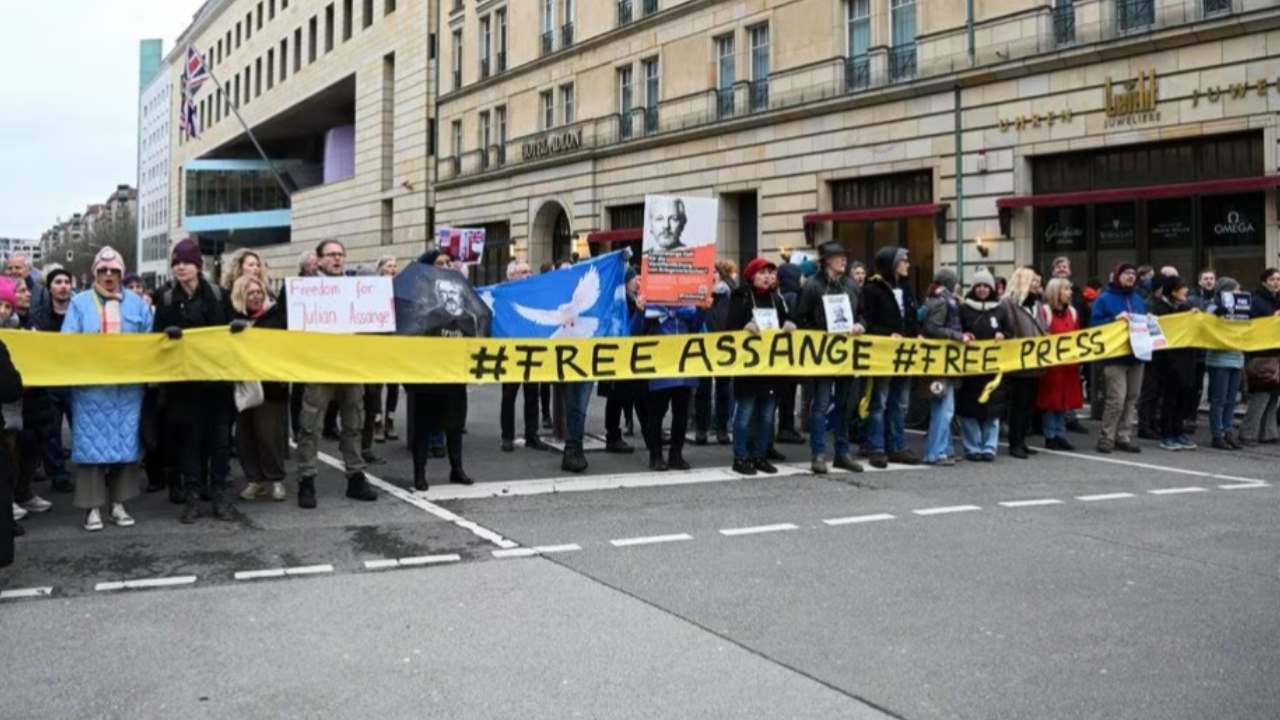Julian Assange’s extradition hearing in an English court represents a critical juncture in his legal battle against being sent to the United States to face charges, including those under the Espionage Act.
Meet Julian Assange
Julian Assange, born in Townsville, Australia, in July 1971, to parents involved in theatre and frequent travel, gained renown as a skilled computer programmer during his teens.
In 1995, he faced arrest and pleaded guilty to hacking, receiving a fine but avoiding imprisonment with the condition of not reoffending. Later, in his late 20s, he pursued studies in mathematics and physics at Melbourne University.
WikiLeaks: What Is It?
In 2006, Julian Assange launched WikiLeaks, establishing a web-based platform serving as a “dead letter drop” for potential leakers.
The website gained significant attention in April 2010 by publishing a classified video depicting a 2007 U.S. helicopter attack in Baghdad, resulting in the deaths of twelve individuals, including two Reuters news staff.

WikiLeaks further released over 90,000 classified U.S. military documents related to the Afghanistan war and approximately 400,000 secret U.S. files concerning the Iraq war.
These disclosures marked the most extensive security breaches of their nature in U.S. military history.
Following the initial disclosures, WikiLeaks continued its releases by publishing 250,000 secret diplomatic cables from U.S. embassies globally, with some content also shared by newspapers like The New York Times and The Guardian.
These leaks provoked anger and embarrassment among U.S. politicians and military figures, who argued that the unauthorized dissemination endangered lives.
Chelsea Manning, a former Army intelligence analyst, served seven years in a military prison for her role in leaking hundreds of thousands of messages and cables to WikiLeaks. She was subsequently released following an order by President Barack Obama.
Arrest And Initiation Of Legal Battle
On November 18, 2010, a Swedish court ordered the detention of Julian Assange in response to an investigation into accusations of sex crimes lodged by two female Swedish WikiLeaks volunteers.

Following this, on December 7, 2010, Assange was arrested by British authorities based on a European Arrest Warrant issued by Sweden. Assange consistently denied the allegations, asserting that he viewed the Swedish case as a pretext for his extradition to the United States to face charges related to the WikiLeaks disclosures.
Julian Assange’s 7 Years In Ecuadorean Embassy
Ecuador granted Julian Assange asylum on August 16, 2012, prompting British authorities to deploy a continuous guard to prevent his departure, warning that he would face arrest if he attempted to leave.
The prolonged standoff resulted in Julian Assange residing in confined quarters within the embassy. Although Swedish prosecutors dropped their investigation in 2017, British authorities maintained that Assange would be apprehended if he exited the embassy due to his prior failure to surrender to bail.
Despite these circumstances, Assange managed to have two children with his partner, Stella Moris, during his time in the embassy.
Beginning Of The U.S. Case
On April 11, 2019, Julian Assange was forcefully removed from the embassy and arrested after Ecuador revoked his political asylum.
Subsequently, in May 2019, he was sentenced to 50 weeks in jail for violating his bail conditions. In June 2019, the U.S. Justice Department formally requested Britain to extradite him to face charges related to hacking U.S. government computers and violating espionage laws.
Despite completing his prison term in September 2019, Assange remained in Belmarsh maximum security prison awaiting extradition hearings.
On January 4, 2021, a British judge ruled against Assange’s extradition, citing concerns about his mental health and the risk of suicide. However, in December 2021, the U.S. authorities won an appeal against this decision at London’s High Court, providing assurances about the conditions of Assange’s potential detention, including the possibility of serving any sentence in Australia.
Finally, on March 23, 2022, Assange married his long-term partner Stella while still in Belmarsh prison.
Final Legal Battle
In June 2022, Britain’s Home Secretary at the time, Priti Patel, approved Julian Assange’s extradition. Last year, a judge at London’s High Court denied his request for an appeal. In a recent two-day hearing, Assange’s legal team sought permission to launch a final appeal to reverse the extradition decision in English courts, arguing that the case is politically motivated, constitutes an assault on freedom of speech and journalism, and raises concerns about the possibility of him facing the death penalty if convicted.
If Assange’s legal team succeeds, his case will proceed to a full appeal. However, if he loses, the only remaining avenue to block his extradition lies with the European Court of Human Rights (ECHR), which has previously dismissed two of his applications in 2015 and 2022.
Supporters fear that if extradited, Assange could be held in a high-security U.S. jail and potentially face a prison sentence of up to 175 years. In contrast, U.S. prosecutors have stated that the sentence would not exceed 63 months.




